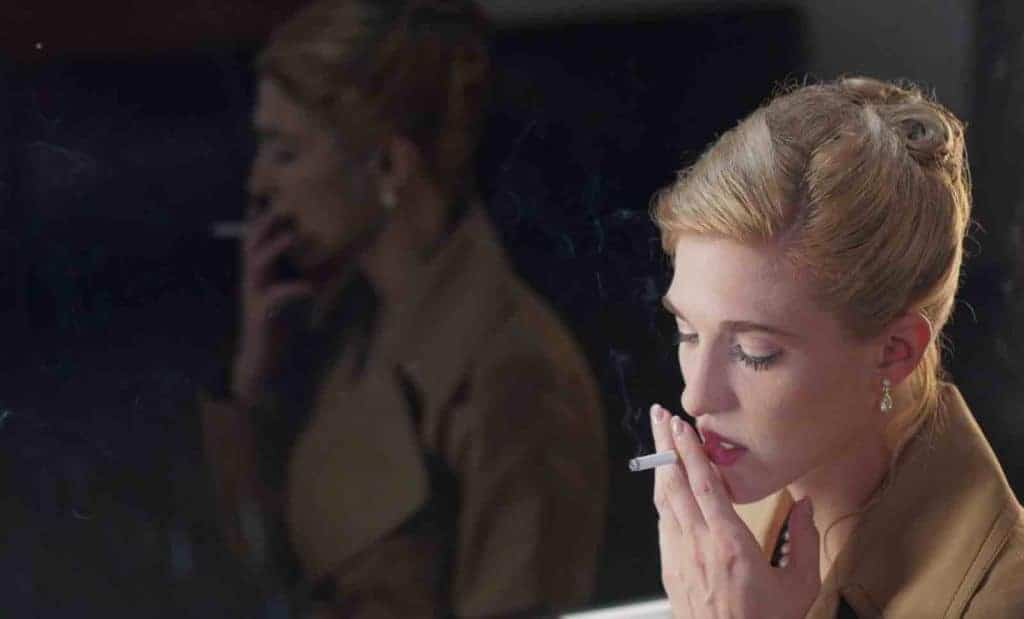Over 60 feature films by female directors will screen at this year’s Toronto International Film Festival (TIFF), most of which are acquisition titles still seeking North American distribution.

Strong showing of female directors in Gala Presentations
It’s a landmark year for female directors at the 2016 Toronto International Film Festival, with over 60 feature films directed by women being showcased. A handful of titles come to the festival already with distribution deals in place, including Kelly Reichardt’s exquisite Sundance drama Certain Women, Kelly Fremon Craig’s The Edge of Seventeen, and Mira Nair’s chess drama Queen of Katwe. Fresh from the Cannes Competition, where it was universally praised by critics as the best film of the festival, Maren Ade’s third feature, Toni Erdmann, will screen just twice at TIFF (though it will open in Canada and the U.S. later this year). Andrea Arnold’s Cannes Jury Prize-winning film American Honey will open in North America just after the festival, though its punishing 2.5 hour runtime may make it hard to fit in.

Most films directed by women at TIFF are still seeking distribution
It may come as a surprise that most of the films directed by women at the festival are actually acquisition titles seeking distributors — especially given the talent involved. Five of the seven Gala Presentations directed by women are still seeking North American distribution: Lone Scherfig’s (An Education, The Riot Club) period piece Their Finest starring Gemma Arterton; Canadian director Bronwen Hughes’ road movie Journey is the Destination starring Ben Schnetzer; Rebecca Zlotowski’s Planetarium starring Natalie Portman; Amma Asante’s period piece A United Kingdom starring David Oyelowo and Rosamund Pike; and Katherine Dieckman’s Strange Weather starring Holly Hunter.

Vanguard and Midnight Madness finally offer multiple female-helmed films
The biggest breakthrough this year is in the festival’s genre sections, Midnight Madness, and its older, more sophisticated sibling, Vanguard. Last year, Midnight Madness had only one film by a female director, and it was only a segment of an anthology film — the rest were directed by men. This year, Midnight Madness features Julia Ducournau’s Raw, about a vegetarian who turns cannibalistic, fresh from Cannes Critics’ Week. Meanwhile, Vanguard, which last year boasted only one female-helmed film (Lucile Hadzihalilovic’s Evolution) features several films directed by women: Prevenge, which is already getting raves out of Venice; Buster’s Mal Heart, which stars Rami Malek of I, Robot; and Ana Lily Amirpour’s A Girl Walks Home Alone at Night follow-up, The Bad Batch, which opens the section and is already one of the festival’s most buzzed-about titles.

Female-directed films account for a quarter of the Platform competition
Female-directed films make up a quarter of the festival’s new showcase competition, Platform. Katell Quillévéré’s genre film Heal the Living will compete against Fien Troch’s gritty coming-of-ager Home and Mijke de Jong’s feminist exploration of a teenage muslim girl who gets radicalized in Layla M. These films will go head-to-head with many well known international auteurs, including Pablo Larrain’s Jackie (No, The Club), Bertrand Bonnello’s Nocturama (Saint Laurent), and Inuk filmmaker Zacharias Kunuk’s Maliglutit (Searchers) (Atanarjuat: The Fast Runner).
TIFF to premiere new films by Anne Émond and Chloé Robichaud
Two of my most anticipated titles come from Canadian Québécois filmmakers Chloé Robichaud and Anne Émond, both TIFF veterans. Robichaud’s first feature, Sarah Prefers To Run, screened at TIFF in 2013 after its premiere in the Cannes Film Festival’s Un Certain Regard section. Robichaud returns this year in the Contemporary World Cinema section with Boundaries, a political satire starring Emily Van Camp. Émond’s previous feature, Our Loved Ones, was one of the highlights of last year’s festival. It was also selected as one of Canada’s Top Ten Films of 2015. She returns this year with a genre film, Nelly, in the Vanguard section. Although both of these films will be distributed in Canada by eOne, they are still seeking U.S. distributors. Émond’s previous film was also distributed by eOne, but it never played regular cinemas outside of Quebec. Don’t miss these two films at TIFF in case it’s your only chance to see them on the big screen.
Many docs helmed by women at TIFF
As always, there’s a strong showing of documentaries directed by women in the TIFF Docs section. The Cinema Travelers, a celebration of the traveling celluloid cinemas in India that are slowly dying out, heads to TIFF after a successful run in Cannes Classics earlier this year. Maya Zinshtein’s Forever Pure explores racism in the Israeli soccer team. And María José Cueva’s Beauties of the Night captures the lives of 1970s Disco Showgirls in Mexico. With the exception of Gringo: The Dangerous Life of John McAfee, which has been picked up by Showtime in the U.S., all of these docs are still seeking North American distributors.
Headlining the Special Presentations section are: Deepa Mehta’s Anatomy of Violence, based on the true story of a gang rape; Emmanuelle Bercot’s stirring 150 Milligrams, starring Sidse Babbett Knudsen as a crusading scientist and doctor; and Susan Johnson’s Carrie Pilby starring Bel Powley, the breakout star of Diary of a Teenage Girl. Francis Ford Coppola’s wife, Eleanor Coppola, gets behind the camera for Paris Can Wait. Aisling Walsh tells the true story of Canadian artist Maud Lewis, played by Sally Hawkins, in Maudie. And Isabelle Huppert stars in Things to Come, Mia Hansen-Løve’s exquisite follow-up to her sub-par Eden.

Several great feature debuts from female directors
Finally, some of the most exciting films of the festival come from first-time feature directors. Sami Blood is an extremely accomplished and moving story of assimilation and alienation set mostly in the 1930s when Sweden forcibly sent Indigenous Sami children to boarding schools similar to Canada’s residential school systems. Elite Zexer’s Sundance-winner Sand Storm is a moving story about Bedouin women surviving patriarchal oppression in modern-day Israel. Nova Scotia filmmaker Ashley McKenzie makes her feature debut with Werewolf, a stunning formal piece about a pair of drug addicts in the Maritimes getting by on limited government help. British filmmaker Hope Dickson Leach makes a stunning, heart-rending debut with The Levelling, about a grieving father and daughter grappling with years of buried pain. And Emilie Deleuze’s Miss Impossible, one of the TIFF Kids features, is a joyous film that’s a bit like a French We Are The Best!.

Eleanor Catton’s The Rehearsal gets a screen adaptation at TIFF
The film that I’m most excited for is Alison Maclean’s The Rehearsal. It’s an official selection of the New York Film Festival main slate, but is bound to go unnoticed at TIFF given its place in the Contemporary World Cinema section and few screenings. Although best known for her Man Booker Prize winner, The Luminaries, Eleanor Catton’s The Rehearsal is a remarkable and clever debut — one of my favourite books — now adapted for the screen. And I can think of no better director, for this psycho-sexual coming-of-ager about the tricky territory of girl sexuality, than the woman who took Gossip Girl’s threesome episode and not only avoided disaster, but made it one of the series’ best episodes. The film is being distributed by Mongrel in Canada, but has yet to pick up a U.S. Distributor, though it’s already gotten very positive notices from its New Zealand premiere.

